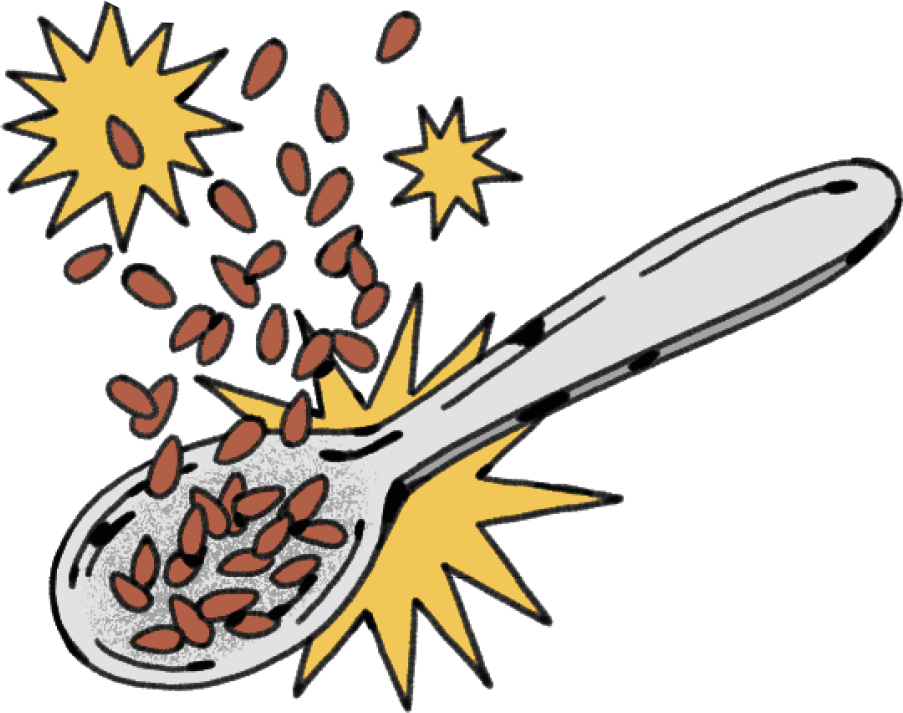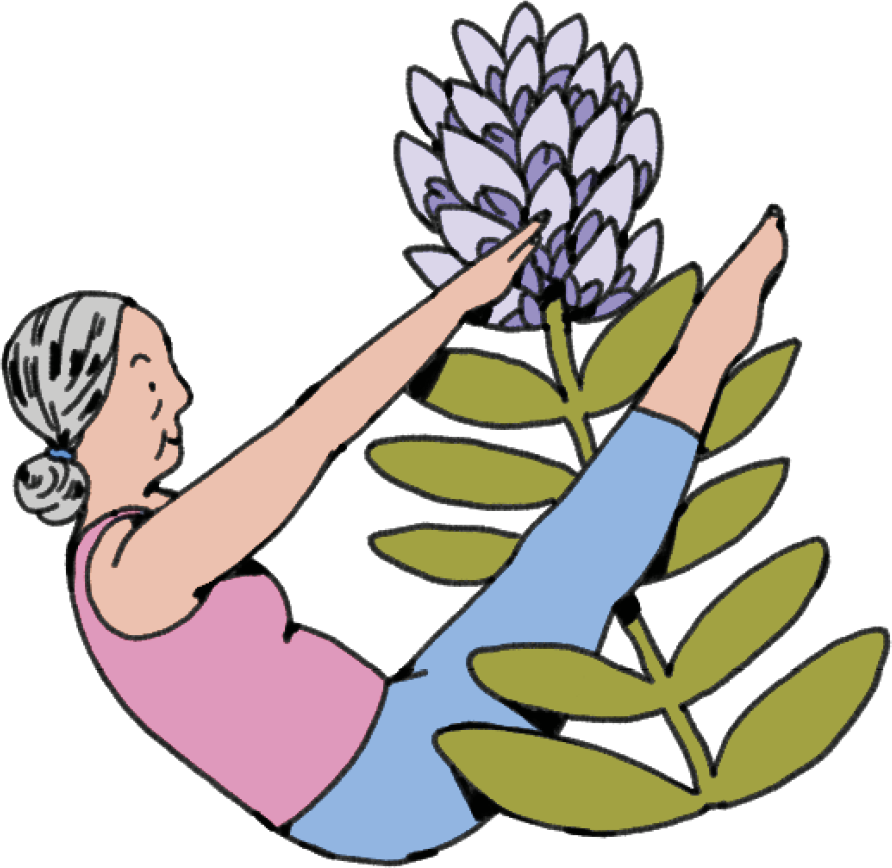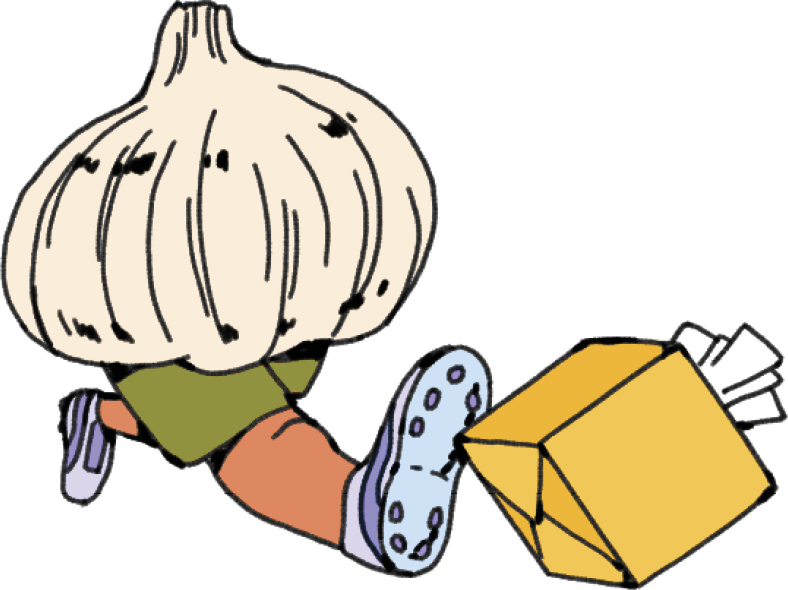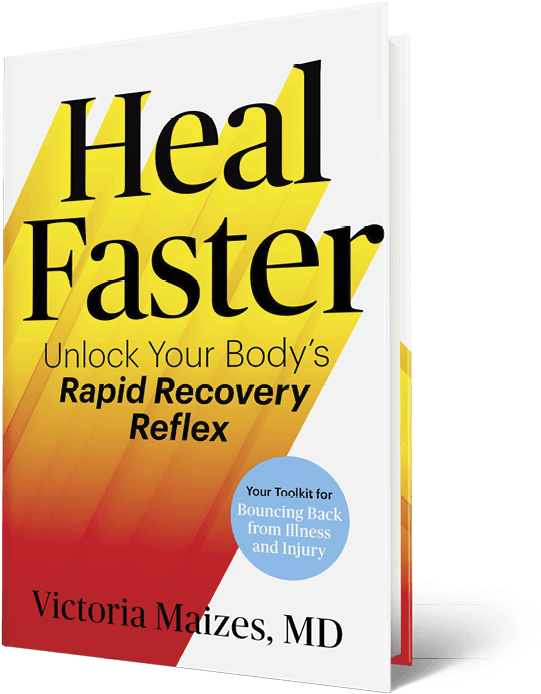Healthy You
Natural Cures for Jangled Nerves
Proven ways to calm your anxiety, focus your mind and free yourself from dread
By Victoria Maizes, M.D.

ANXIETY IS part of the human experience; it transcends age, gender, socioeconomic status, cultural backgrounds and even celebrity. In 1967, while performing a concert in New York’s Central Park, Barbra Streisand bungled the lyrics to several of her songs. Her anxiety was so great—what if she forgot the lyrics again?—that she didn’t perform in front of an audience for another 27 years!
The good news is that the same brain that creates anxious thoughts can also subdue them. Here’s how you can quell your unease.
Get excited.
Harvard Business School researcher Dr. Alison Wood Brooks subjected study participants to a series of stressful tasks and instructed them to say, out loud, either “I am anxious” or “I am excited,” or nothing at all. The “excited” participants performed better every time. Just by saying “I am excited,” you can transform your anxiety into enthusiasm.
Reframe your worries.
Cognitive behavioral therapy (CBT) teaches people to change their negative thought patterns to more effectively manage their emotional responses. To get started:
1. Identify anxiety-provoking thoughts. Sometimes we run from anxious thoughts and feelings; recognizing and acknowledging them can make them more manageable.
2. Challenge these thoughts. Ask yourself: Is this anxious thought based on facts or on assumptions? Are there other ways to look at this situation? What would I tell a friend who had this thought?
3. Develop more positive thoughts. For example, instead of thinking, This project is going to be a disaster, you might reframe it as There certainly are challenges, and I am going to plan carefully and ask for support.
4. Practice mindfulness. Anxiety is almost always focused on an uncertain future. Mindfulness means paying attention on purpose, in the present moment.
Breathe and hum.
When we’re anxious or fearful, our breathing becomes erratic, shallow and fast. If you can’t calm your breathing, try to hum, chant or sing. These actions activate the vagus nerve—the long, cranial nerve that extends from your brain stem all the way to your pelvic floor and plays a crucial role in stimulating the part of your brain that controls anxiety.
Consider supplements.
But speak to your doctor first, as many supplements can interact with prescription medications.
B vitamins are vital for the production and regulation of neurotransmitters, which play significant roles in mood regulation. One study found that people who took 100 milligrams (mg) of vitamin B6 every day for a month reported less anxiety and depression. I recommend the full complement of B vitamins, which is often sold as “B50.”
Omega-3 fatty acids, including EPA and DHA, support brain health and reduce anxiety, but people often do not take a sufficient dose. One meta-analysis found that those taking at least 2,000 mg of EPA and DHA daily saw reduced overall anxiety levels. A dose below 2,000 mg did not achieve this effect. Choose an omega-3 supplement with EPA and DHA in about a 1:1 ratio.
Kava has active ingredients called kavalactones, which can help relieve anxiety, protect neurons from damage and improve sleep. I always have kava tea with me.
Lavender, diffused or inhaled directly, can have immediate calming effects. While most essential oils are not meant to be taken orally, an exception is lavender—in a formulation called Silexan. It has been found in studies to reduce anxiety levels comparable to benzodiazepines. The standard dose is 80 mg daily; it is safe to take up to 160 mg per day.
Inositol is found in small amounts in fruits, beans, grains and nuts, and can be taken as a supplement to treat anxiety and panic attacks. I usually have people begin with 3 grams and slowly increase their dosage to approximately 12 grams.
Magnesium supplements have been found to effectively reduce anxiety. I recommend 400 mg daily of magnesium citrate or glycinate. I also recommend a hot bath with 1 cup of Epsom salts—which is magnesium sulfate—added to the bathwater. The magnesium from the Epsom salts is absorbed through your skin.
Adaptogens are a unique class of herbal medicines that help the body adapt to stress. I frequently recommend ashwagandha (Withania somnifera), which helps reduce anxiety, lowers cortisol levels and can improve sleep; the dose is 300 mg twice daily of ashwagandha extract.
Download anxiety-busting apps.
I recommend mind-body apps to virtually every patient I see. There are many to choose from, but I especially like Insight Timer, which has more than 300,000 free guided meditations as well as a paid-subscription option, and Unwinding Anxiety ($29.99 per month), which was developed by psychiatrist Dr. Jud Brewer.
Get under a weighted blanket.
A meta-analysis found that 63 percent of people using them reported a reduction in anxiety symptoms. Per studies, the ideal blanket weight can be up to 10 percent of your body weight.
Try a vagus nerve stimulating (VNS) device.
Sensate is a palm-sized device you position over your sternum that works by toning the vagus nerve—a master controller of anxiety—and I have found it highly effective for my patients who complain of anxiety. Another VNS device is Alpha-Stim, which clips onto the earlobe. It is available online and at some VA medical centers. GammaCore is a third vagus nerve stimulator that delivers mild electric signals to the neck. It has been FDA-cleared for migraines. Important note: If you have a pacemaker or other implanted device, be sure to check with your primary care doctor before using any of these devices.
Excerpt from Heal Faster by Victoria Maizes. Copyright © 2026 by AARP. Reprinted by permission of Simon & Schuster, NY. Maizes is executive director of the Andrew Weil Center for Integrative Medicine and professor of medicine at the University of Arizona.
FRIENDS WITH SIDE BENEFITS

Relaxation techniques like yoga, meditation and breath work can reduce recurrent cardiovascular events by 29 percent and mortality by 34 percent. That’s what I like to call the “side benefits” of natural treatments. Throughout my new AARP book, Heal Faster, I reveal an array of these unexpected benefits from some of the most common natural remedies. For example:

Turmeric may save your liver. A turmeric supplement can help ease arthritis discomfort. The side benefits of turmeric may include improvement in nonalcoholic fatty liver disease, GERD and depression.

Flaxseed may enhance cancer treatment. Fresh flaxseed adds fiber and omega-3 fatty acids, but it also contains lignans, which can bind to estrogen receptors and reduce tumor growth.

Pilates can treat chronic pain. Pilates exercises strengthen your core, including the muscles around your spine. Side benefits: reducing chronic pain, anxiety and depression.

Garlic can stop a cold. Both fresh-pressed garlic and chicken soup have been studied, and they really can boost the immune system’s ability to fight infections.
Melatonin and licorice can improve surgical outcomes. Many people use these to help them fall asleep. But these two supplements can also improve comfort after surgery. —V.M.

Visit aarp.org/bookstore to purchase Heal Faster and other AARP books.
Getty Images; Illustrations Kaitlin Brito